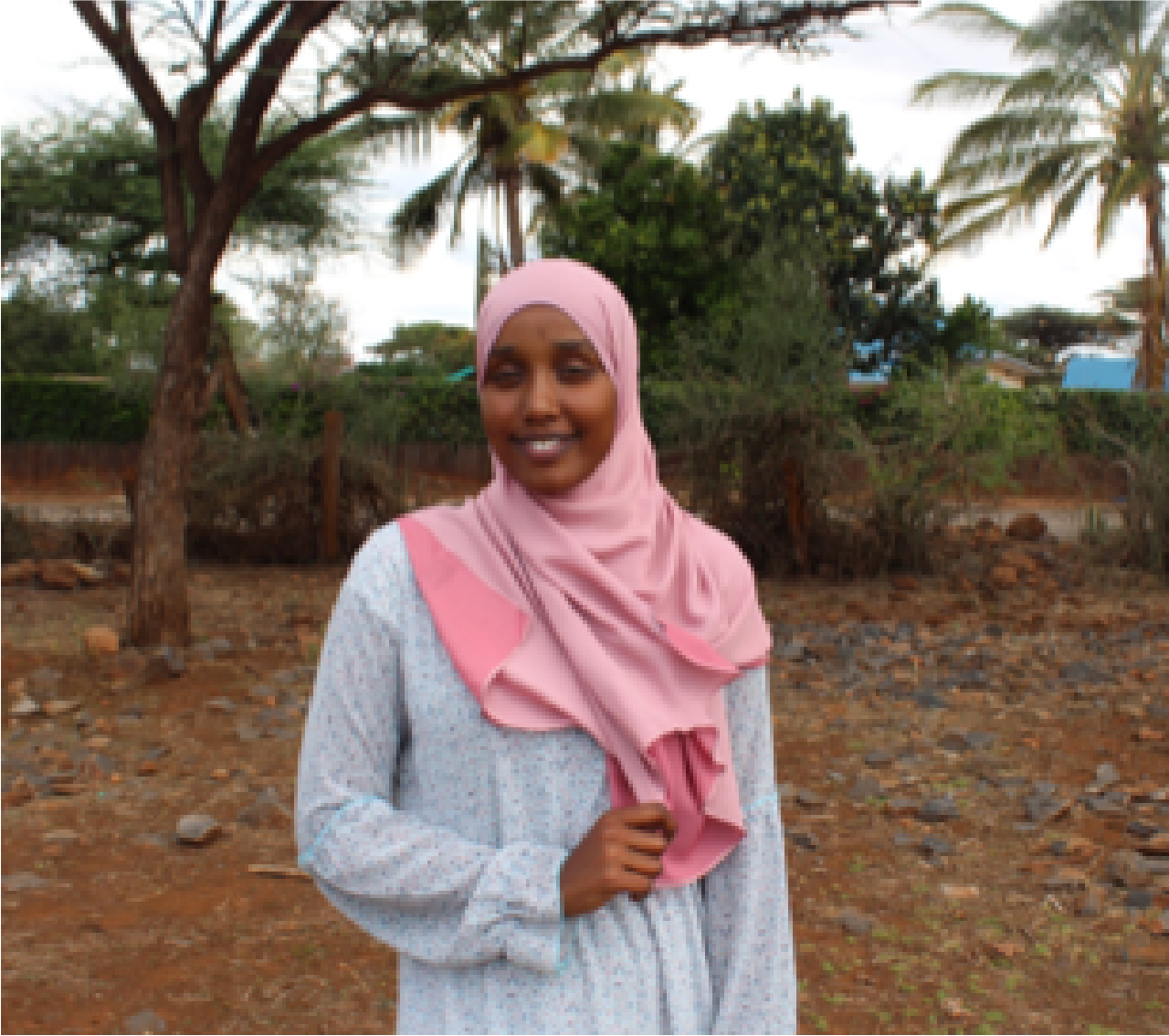ISIOLO/MARSABIT, Kenya - The race to end female genital mutilation (FGM) is on, in Kenya, following a commitment by President Uhuru Kenyatta to eliminate FGM in the country by the year 2022. Young survivors and anti-FGM advocates from two of Kenya’s FGM hotspots are leading the charge against this harmful practice, using their personal experiences and knowledge of local culture to change their communities’ attitudes towards the cut.
It is estimated that 4 million girls and women in Kenya have experienced FGM, with 21 percent of girls and women aged 15 to 49 years having undergone the practice. UNFPA has worked with the youth in Kenya including those from the 22 hotspot counties with a high prevalence of female genital mutilation to create awareness in their communities on the harmful effects of FGM, and to advocate for alternative rites of passage.
For survivors like 26-year-old Aisha Hussein from Isiolo county, a firsthand experience of the impact of FGM on her health turned her into a determined anti-FGM crusader and advocate for women and girls rights.
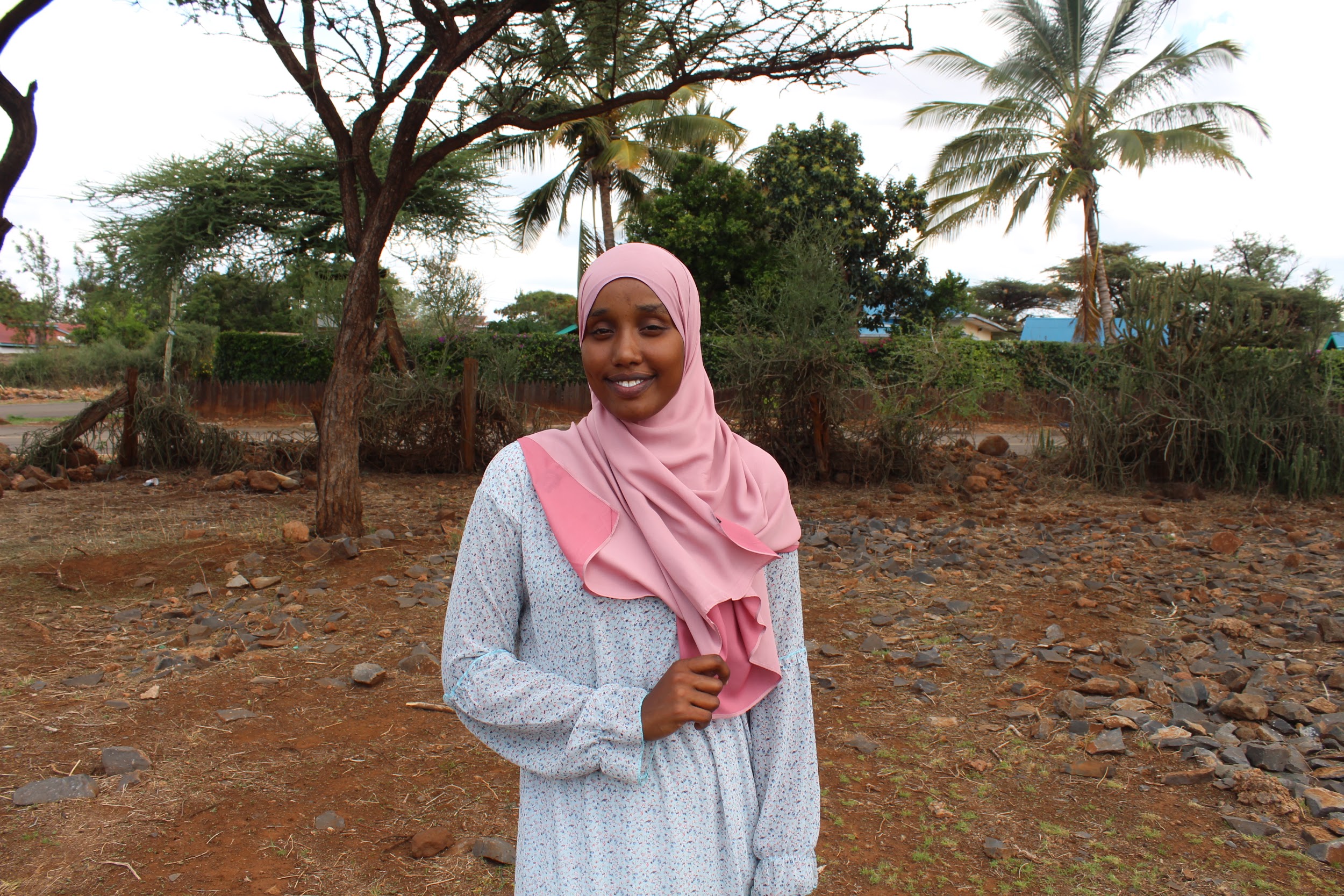
Photo: Aisha Hussein
“I underwent FGM at the age of seven because at the time, all of my classmates had done it and I felt that I had to do it too in order to be a woman,” she says. Aisha recalls that for most of her life, she would look down on young women who had not undergone FGM. She completed school and went on to study communications at a local university, before getting married at the age of 22.
“After I got married, giving birth to my first child was a difficult and traumatic experience. I had prolonged labour and the doctor told me that I had to undergo an emergency cesarean section to save my baby’s life.” Aisha says that she suffered postpartum depression, and her experience with childbirth led her to study the effects of FGM, and its relation to her delivery complications.
FGM is a violation of girls’ and women’s rights that causes immediate and long-term health complications such as severe bleeding, infections, infertility, complications in childbirth, as well as increased risk of newborn deaths.
“Seven days after delivering my baby, I created a WhatsApp group to discuss my experience with friends who had also undergone FGM. They all shared that they had suffered similar issues, and some had problems with their menses,” she says.
Aisha founded “Every Girls Dream,” a community-based organization that works with FGM survivors to campaign against the practice within communities in Isiolo county. The organization carries out youth mobilization events and organizes stakeholder forums where survivors are encouraged to use their voice in advocating for cultural changes and reinforcement of the law in the fight against FGM.
“I believe that youth-led FGM survivor groups working at a grassroots level have the ability to change society. As survivors, our stories are too powerful to ignore,” says Aisha.
Overcoming loss and grief: Mumina Jirmo
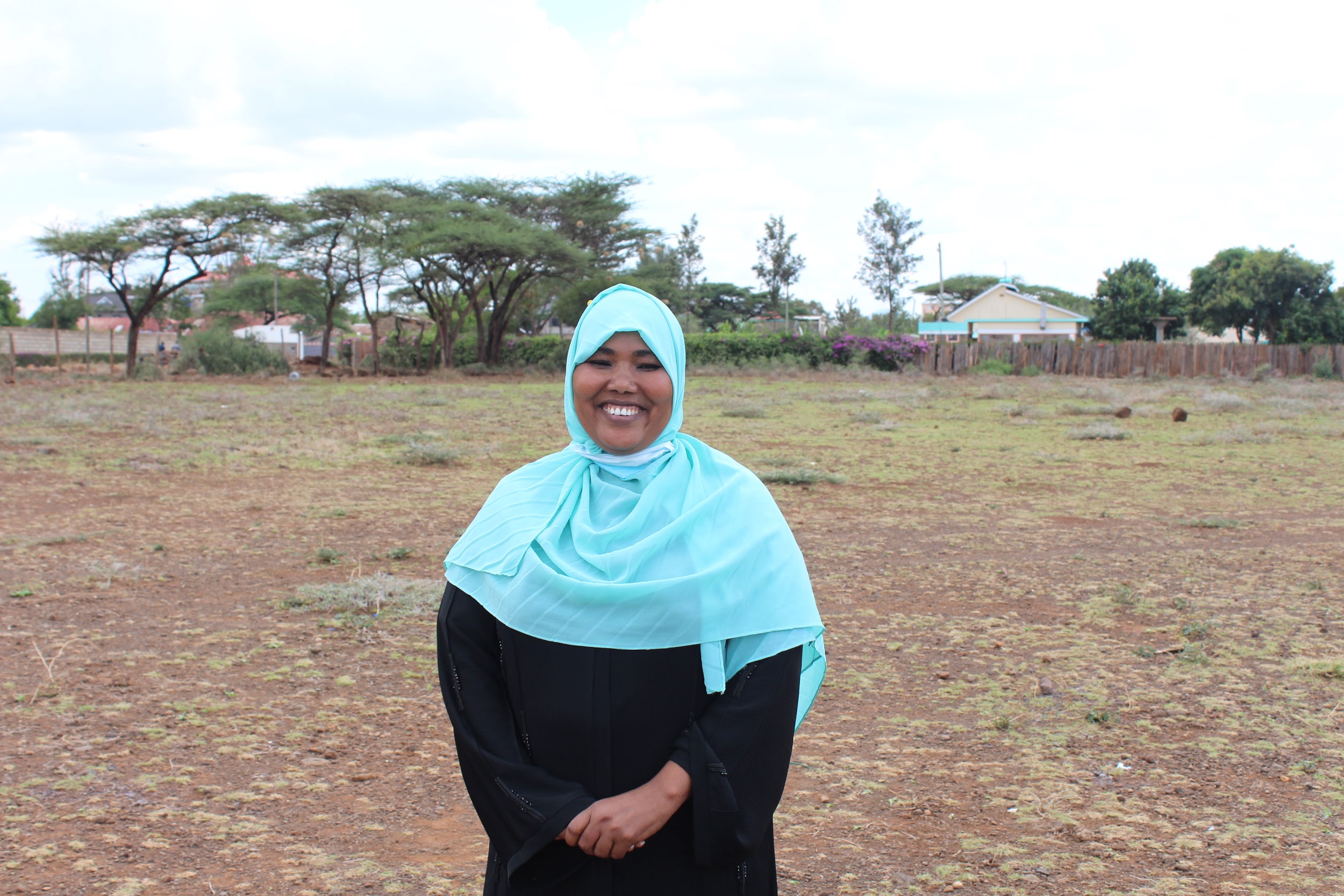
Photo: Mumina Jirmo
Mumina Jirmo was also seven years old when she underwent FGM. For her, the experience was shocking and painful, so much so that more than 20 years later, the sight of someone cutting meat with a knife is still disturbing to her as it brings back traumatizing memories.
Mumina is a mother of three, but her journey to motherhood was not easy. “ I experienced prolonged labour and postpartum hemorrhage with my pregnancies, and sadly, I have lost two babies due to delivery complications” she tearfully explains.
Through her community-based organization Women Rising, Mumina has become a fierce anti-FGM advocate, working with young mothers to protect the next generation from the practice. “We speak to young women and young mothers with the goal of educating them on the dangers of FGM so that they don’t circumcise their daughters,” she says.
“The loss of my children was the most painful ordeal, and I promised myself that I would work hard to make sure that no young girl in my community undergoes such pain. I wanted to be the last woman on earth to have undergone FGM, and that is why I fight the practice,” adds Mumina.
She believes that the next generation can be saved from FGM, and her 12-year-old daughter Sharifa has already joined her in the campaign against the practice. Sharifa writes poetry about the dangers of FGM which she recites at school and other anti-FGM platforms.
A lifesaving maternal clinic in Marsabit
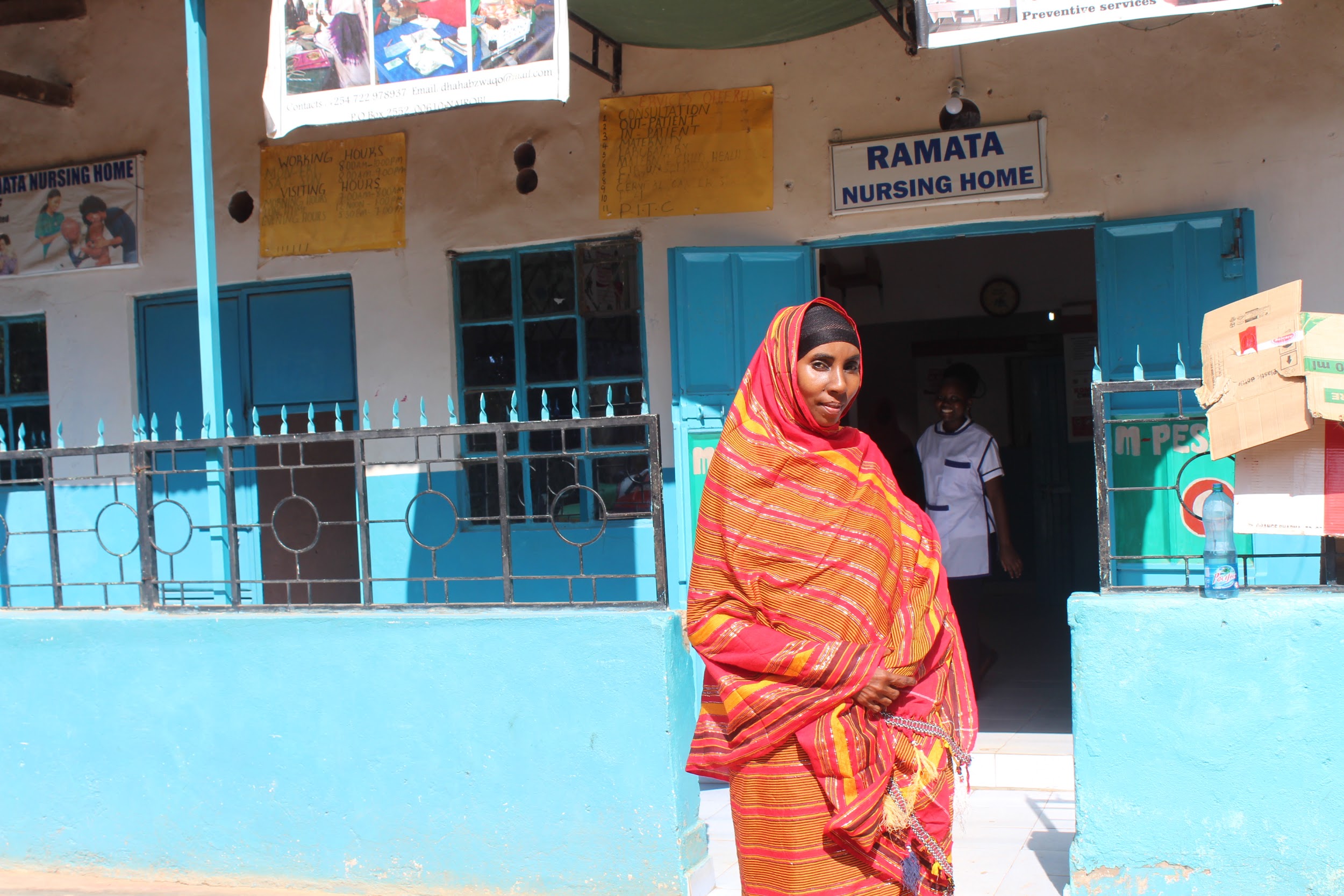
Photo: Dhahabo outside the nursing home she established in Sololo Town, Marsabit County.
Sololo town is a hot and dry urban center located in the Moyale-Sololo escarpment, near the Kenya-Ethiopia border. It is where we meet Dhahabo Abagaro, a nurse, midwife, and anti-FGM champion working to help women give birth safely and deal with delivery complications brought about by FGM. “I am a survivor of FGM, and I know the impact it has especially to a mother who is delivering. In my community, which is a rural setup, mothers undergo a lot of complications and problems especially when giving birth at home,” she says.
Dahabo began her tireless campaign against FGM by forming BIFTU, a community-based organization that fights FGM at the grassroots level. Through BIFTU, she was able to conduct door to door outreach, where she encountered expectant mothers in remote villages. She started offering them free prenatal checkups and distributing vitamins and supplements. “It is during this outreach that I realized some of the women were suffering from FGM related complications such as obstetric fistula and had not sought any medical help. I recognized a need for a maternity nursing home to cater to pregnant mothers who have to travel long distances to reach healthcare facilities,” explains Dhahabo. She set up Ramata Nursing Home, a maternity care facility that started with just one bed, and has now grown to include a lab, pharmacy, and maternity clinic offering pre and postnatal services to expectant women in the community.
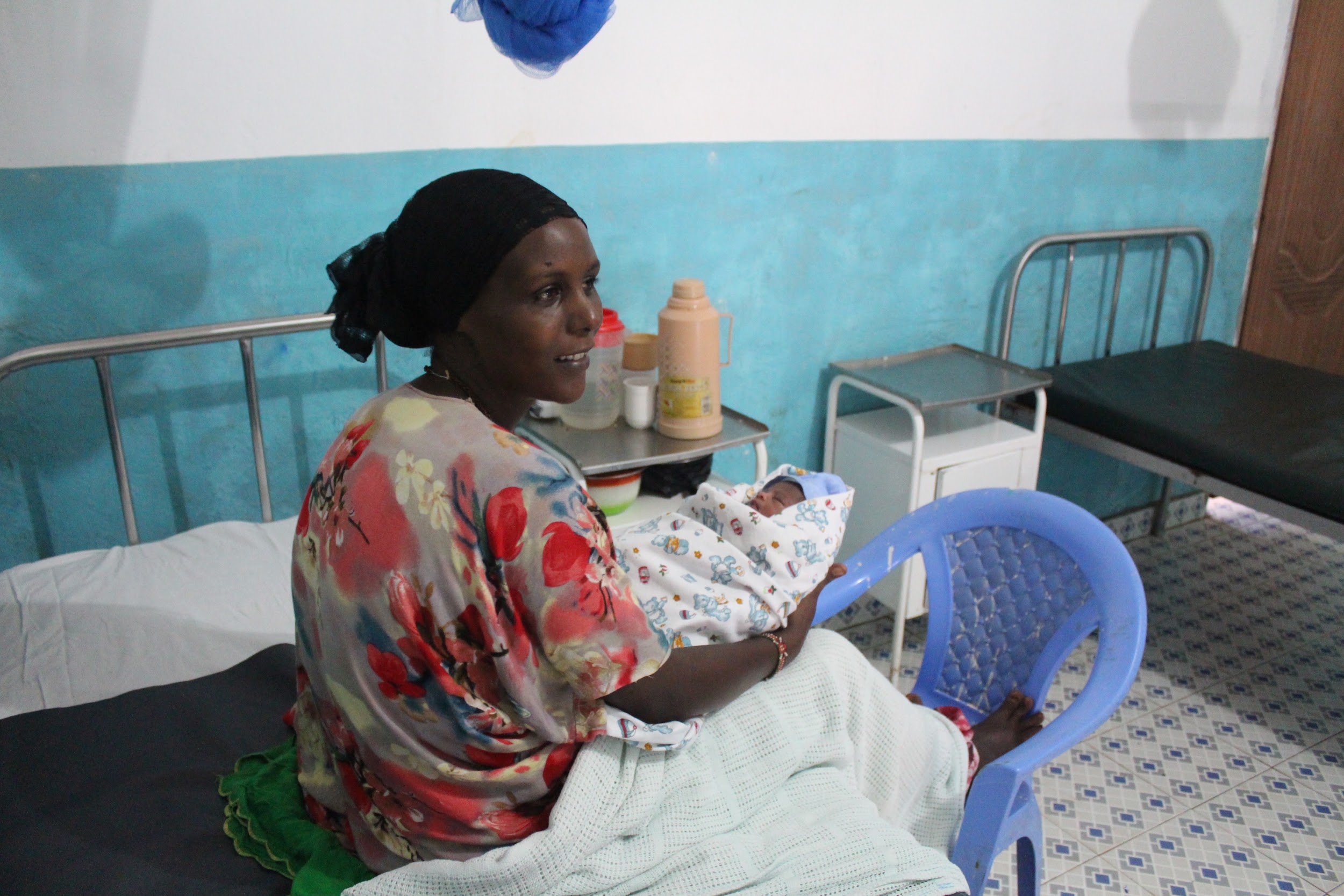
Photo: A mother holds her newborn baby delivered at Ramata Nursing Home, Sololo, Marsabit County
Due to Sololo’s location at the Kenya-Ethiopia border, cross-border FGM is a rampant problem that complicates the fight against the vice. “We have worked with female circumcisers on our side of the border to sensitize them on the harmful effects of FGM, and most of them have reformed. The unreformed are now afraid to carry out the practice as they know they can be arrested. However, the biggest challenge is that circumcisers are brought in from across the border, whereby they perform the cut on young girls and then disappear back into Ethiopia, escaping our local authorities,” she says.
In December of 2019, Dhahabo received word from her network that a group of girls was about to undergo FGM at the border. “I was able to get to the scene very fast with the help of the village head and the chief, and I spoke to the girls and their mothers and urged them not to go through with the planned cut. Fortunately, the circumciser left on hearing of our pending arrival, and no harm was done.”
“I am a living testimony of the harm that FGM causes, and that is why I campaign to ensure that the right people, especially our elders are speaking out against FGM as a cultural practice,” she says with conviction.
Amplifying survivors voices
Twenty Seven-year-old Marsabit resident Hassan Halkano Guyo is the founder of Youth-Led CBO, a community-based organization that fights for the rights of girls and the eradication of FGM within the Borana community. “ We started our organization 3 years ago as a group of 15 young men, to fight for the rights of girls particularly within rural and pastoralist communities in Marsabit. We have been able to rescue over 50 girls from undergoing FGM,” he narrates.
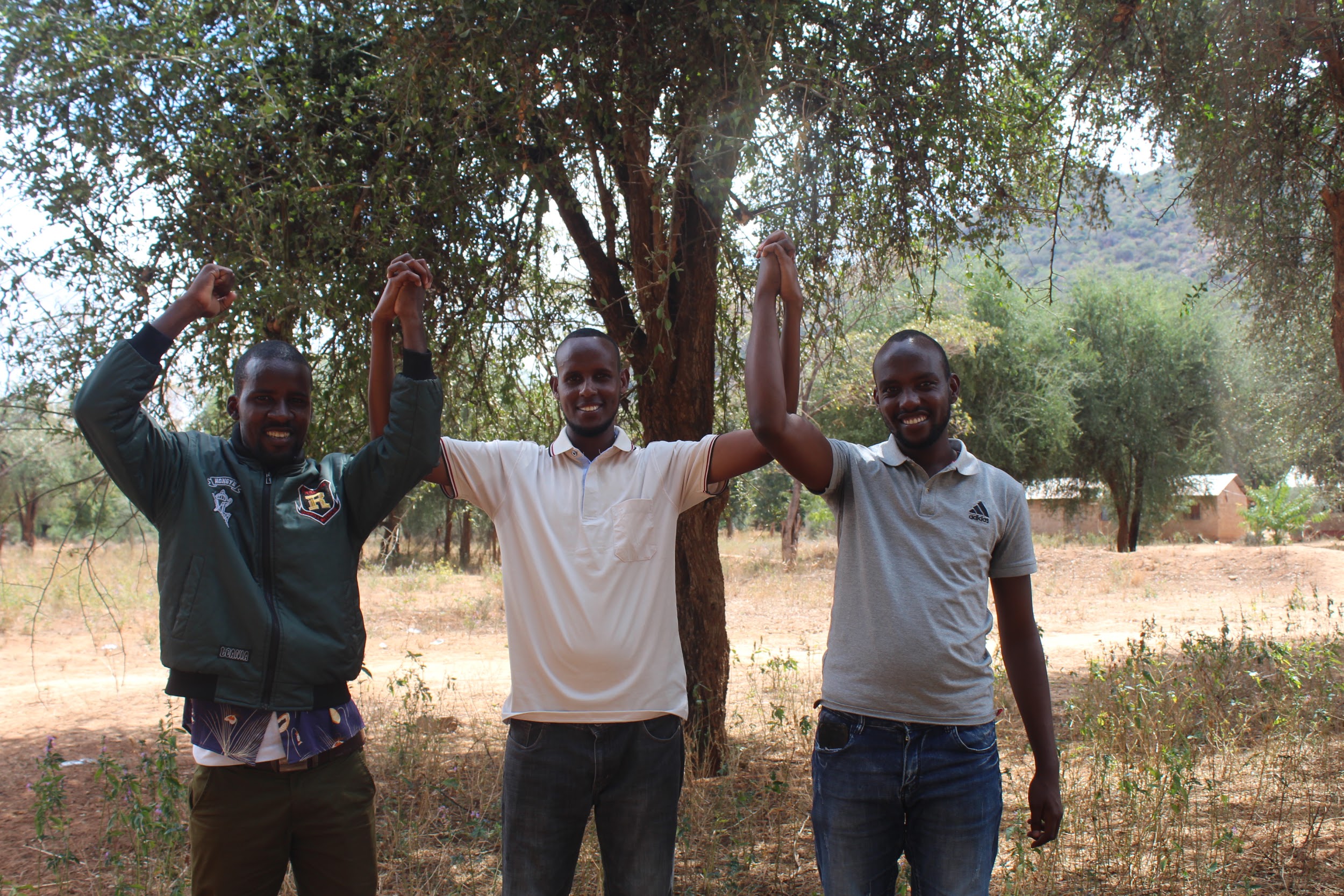
Photo: Hassan Guyo (center) with members of Youth led CBO in Sololo town, Marsabit
Guyo’s work as an anti-FGM crusader began after observing the psychological impact of the cut on his younger sister who was forced to undergo FGM at a tender age. He now works with a network of young people in his community, organizing dialogues with elders, as well as keeping an ear out for stories of girls in distress. “We have been able to help 200 girls enroll in school by advocating for their right to an education equal to what boys in our community are accorded. Using our male voice, we fight to eliminate the notion that girls are inferior and to protect them from harmful practices such as FGM and child marriage,” he adds.
Agents of change
Using a human rights-based and culturally informed approach, these young men and women have become agents of change, protecting women and girls from female genital mutilation, and accelerating the end to FGM in Kenya.
Eliminating the practice by 2022 will require collective action and the strong participation of the youth in persuading communities to abandon the cut. UNFPA continues to work with the government of Kenya, civil society organizations, and community members to ensure that the national commitments made at the Nairobi Summit on ICPD25 are realized.
.

